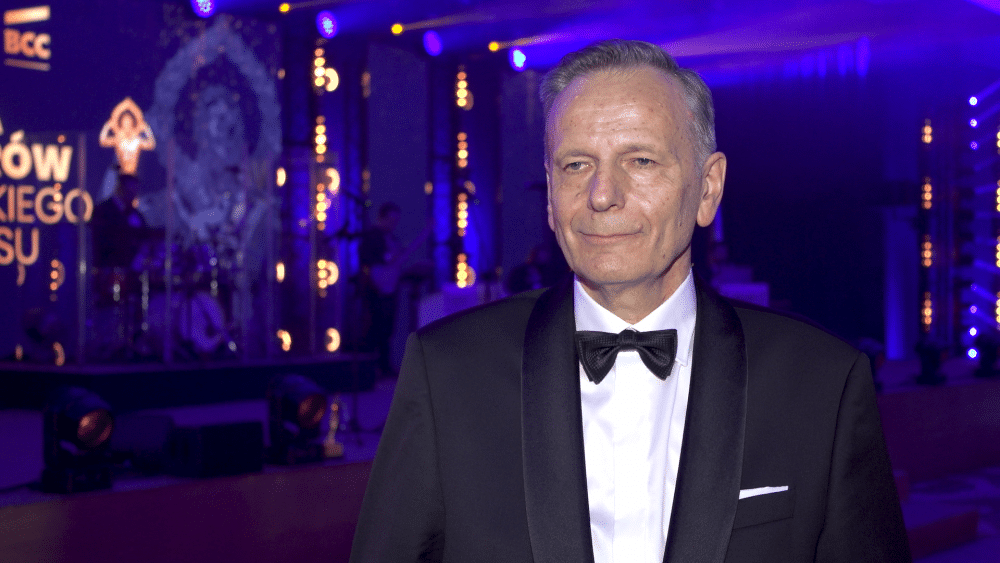Polish companies entered 2024 with optimism. Positive sentiment prevails particularly among large and medium-sized enterprises, while micro and small businesses still experience a slight prevalence of negative moods, due to significant declines in sales volume and new orders. “There are several barriers that hamper business operations today,” according to Dr Jacek Goliszewski, Chairman of the Business Center Club. These include rising labor costs, a scarcity of labor, inflation, high financing and energy costs, as well as legal and tax instability. This challenging environment is a test for companies and their leaders. Entrepreneurs who, despite mounting difficulties, achieved their goals in 2023 and at least maintained their high market position, have just been honored with BCC awards.
“There are several issues that currently pose a challenge for Polish entrepreneurs. For starters, inflation, which has decreased but we must not forget that we still have zero VAT on food and artificially maintained energy prices, so the current reading of inflation is not entirely correct. The second thing is the high costs of financing. Interest rates are quite high, and if inflation rises, it is likely that rates will also increase, so financing costs will also go up. The third issue is energy prices, which are always uncertain and significantly influence the cost of business,” says Dr Jacek Goliszewski, President of the Business Center Club.
According to the latest “Monthly Business Index” survey, published periodically by the PIE and BGK, in January – just like the previous month – the main barrier hampering the operations of Polish firms were rising labor costs (with 70% respondents indicating this; a 3 percentage point increase m/m). Entrepreneurs believe that this factor will have the greatest impact on their business decisions in 2024, primarily due to increases in the minimum wage. High energy prices were identified as a barrier by 61% of firms, and financing costs – by 28%.
“There is also a quantitative and qualitative gap in the labor market, according to various forecasts, by 2026 we will be short of about a million workers. All these elements hinder the day-to-day operations of entrepreneurs, but also disrupt the planning process and the making of appropriate business decisions,” emphasizes the President of the BCC.
According to Jacek Goliszewski, this uncertain and dynamically changing environment is a challenge for Polish entrepreneurs.
However, Polish companies evaluate the prospects for the coming months quite optimistically. This applies in particular to large and medium-sized enterprises, while positive sentiment prevails in services, production, and construction.
As revealed by a January PIE and BGK survey, almost one in three companies in Poland (31%) believes that the green transformation will be a significant factor influencing their operations and business decisions this year.
“Now it is important for both sides to have a dialogue with the government. About 72% of Poland’s GDP is generated by the small and medium-sized private enterprise sector. So we want to get back to dialogue with the government on matters such as the creation of law – particularly economic law, consultations with experts, legislation cost estimation,” says Jacek Goliszewski.
Quality and stability of law is – alongside economic challenges – a significant problem for Polish firms, especially small and medium-sized ones. According to the latest report by Grant Thornton (“Law Barometer 2023”), entrepreneurs would have to devote an average of 2 hours and 10 minutes each working day in the past year to read all the new legal acts. The problem is also the disregard for public consultations and the fact that every year the lead time for companies to adapt to changes is being progressively shortened.
“We also have various other issues, such as the oppressiveness of the law towards entrepreneurs. A new type of invoice-related crime has recently been added to the Penal Code, for which a sentence of up to 25 years in prison is applicable. It is also important for us to reduce the scale of so-called investigative detention, i.e. temporary arrest for companies, which is overused in Poland,” the President of the BCC points out.
During the Grand Gala of Polish Business Leaders, the Business Centre Club presented Special Prizes. Awards were given to firms that achieved success or distinguished themselves with activities positively influencing economic development last year.
“Winning the BCC Polish Business Leaders Award is not easy, we evaluate companies in terms of three main parameters: economic ones, i.e. sales, investments, debt, liquidity, offering high-quality products and services, and meeting the requirements of corporate social responsibility. The award has become prestigious over the years and serves as a calling card for the awarded companies, telling partners, banks, suppliers, clients, as well as employees and future employees, that these are good image companies, with whom it’s worth doing business, they are reliable and reliable partners,” emphasises Dr Jacek Goliszewski.
